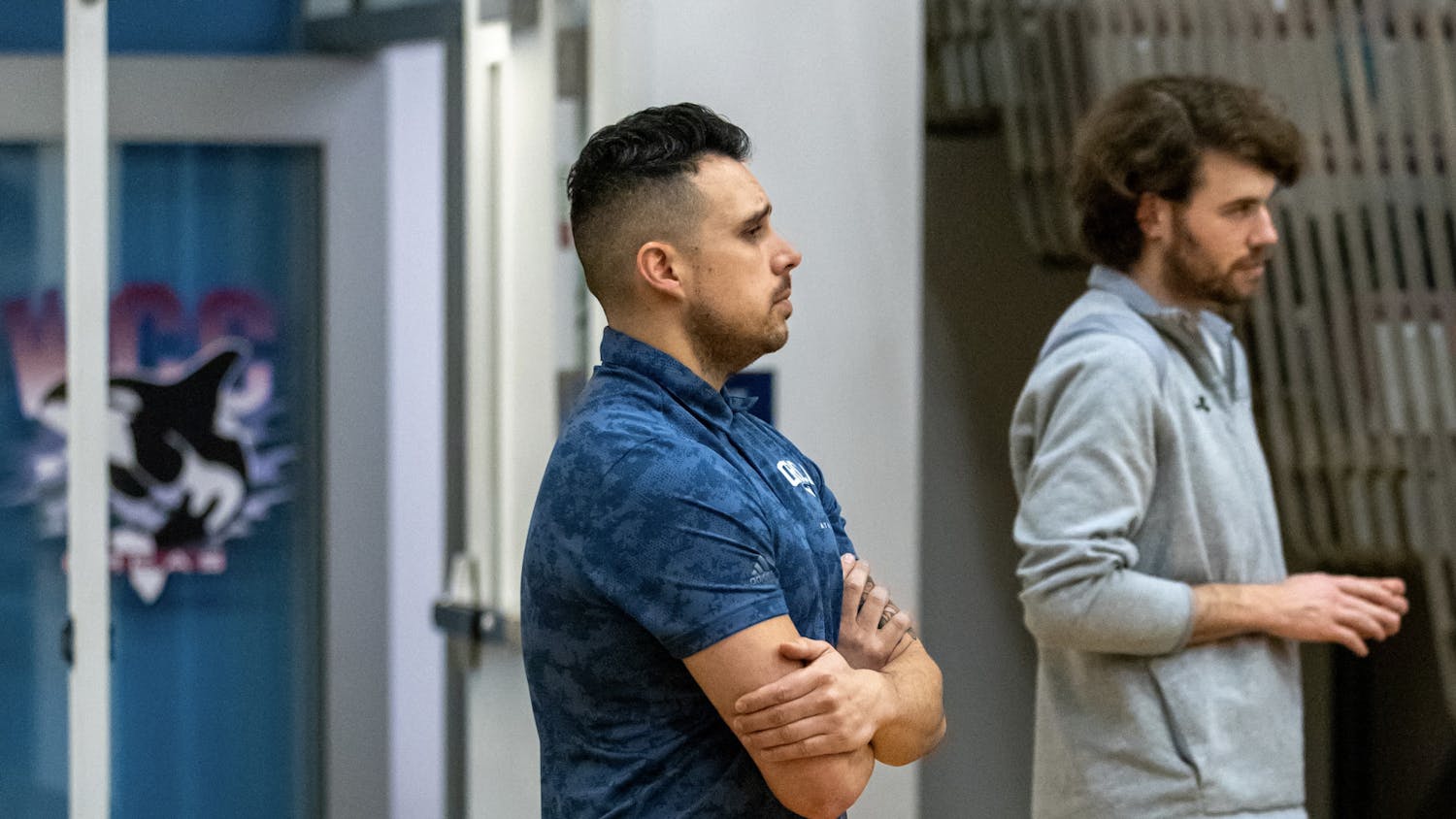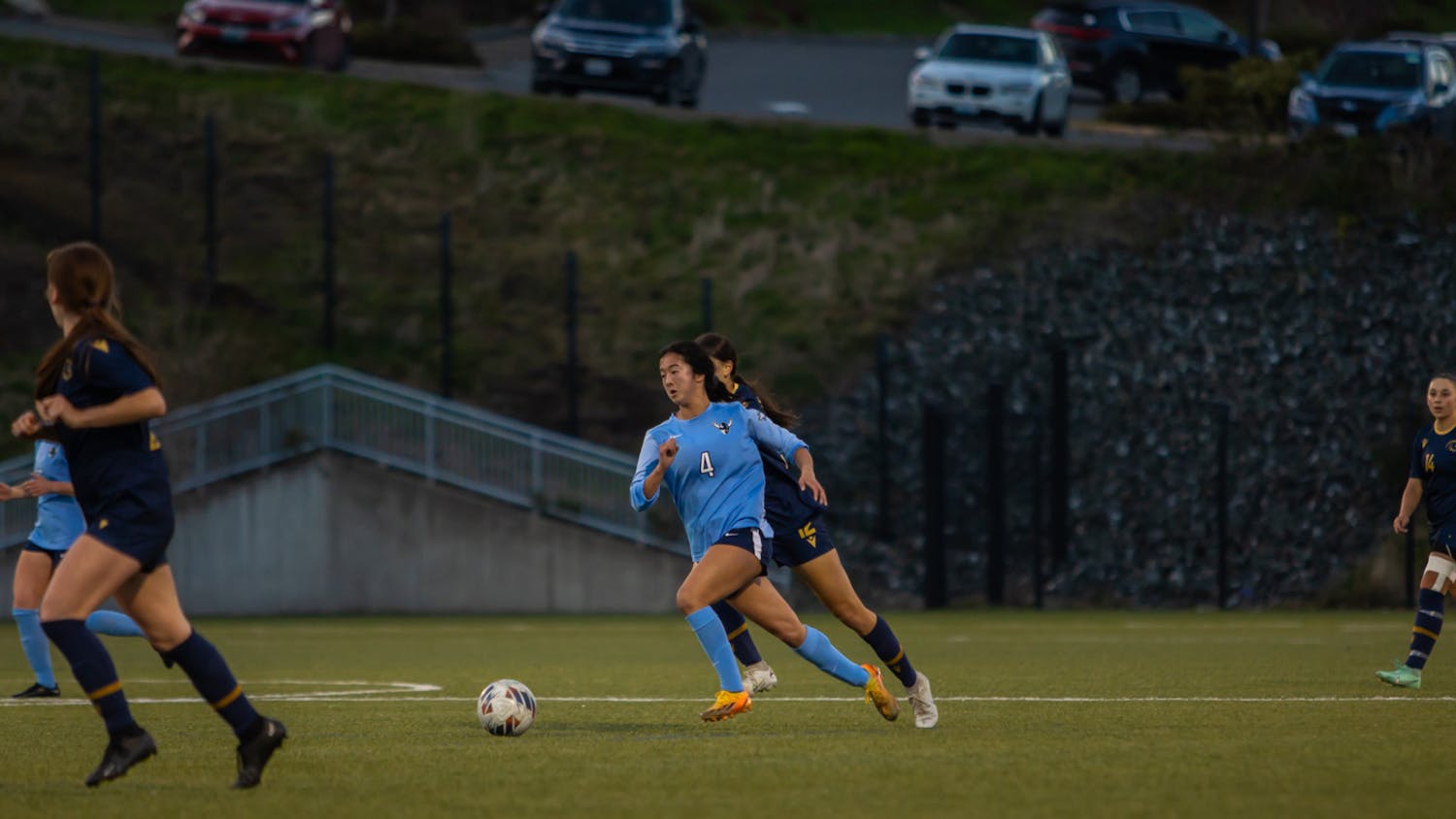Steve Miedema and Jeff Bergman demonstrate taking the ball from an opposing player. // Photo by Tanner Thompson By Tanner Thompson Disabled and non-disabled people gather to play GangBall at Bloedel Donovan Park every Friday evening June through August. GangBall is a wheelchair sport similar to rugby. The game is usually played on an indoor basketball court. Two teams try to score by carrying a ball into the opponent’s end zones, which are marked by two cones, ten feet from each other which creates a goal line. They pass a volleyball-like ball to each other until they are able to get the ball across the goal line, either by rolling over the line in their wheelchair or passing the ball to a teammate that is in already in the goal. Gangball is a contact sport. It involves a rapid game pace and things can sometimes get chaotic. Event coordinator Jeff Bergman receives the ball from a pass. Three feet from the goal line, he is immediately beset by a swarm of opponents trying to block him from scoring, swiping at the ball all the while. Players are ramming their wheelchairs into each other to muscle the ball away. There are many times that players bash into opponents that are guarding the goal zone. That’s when most of the contact comes into play. The offense fights their way through a mob of defenders to get the ball where they want it to go. “They used to call it ‘Murder Ball,’ but we changed that,” Bergman said. “Murder Ball” was the title of a 2005 documentary film about the sport. Bergman has been playing Gangball for about five years. He learned about it through the Bellingham Lions Club, an organization that donated 18 wheelchairs to the weekly game. The other coordinator for the game is Steve Miedema, who has been unable to move his legs for seven years. Miedema was riding in a group of motorcycles when he misjudged the distance between himself and another rider, who he had to swerve off the road to avoid hitting. Miedema was thrown from his bike, breaking his back and paralyzing him. Miedema started playing GangBall as a way to get the exercise he needs post-accident. “It's the only way I get cardio. I am always huffin’ and puffin’ up and down the court,” Miedema said. Miedema said that the version of Gangball they play is toned down from the ultra-competitive versions played elsewhere. With young kids involved, there is usually very little competition actually happening, Miedema said. “We don't keep score. We are just out here to have fun and get exercise,” Miedema said. “When there are 20 minutes to go, we usually say first team to 10 wins, then we’re good.” Miedema said he encourages able-bodied players, who he calls “abies,” to participate as much as people with disabilities do. “Abies tend to fall on the ground a lot.” Miedema said. “They have a harder time getting the hang of the wheelchair.” It’s something that “evens the playing field,” Bergman added. Jennifer Vijil, a non-disabled player, has been playing GangBall for about two years. Her brand of defense is fierce, storming the goal lines to keep opponents out. “I have a hurt ankle, so I can’t actually run or walk far and this is something that I can actually do,” Vijil said. Bergman and Miedema said that they are always looking for more people to come and join the game. The turnout is hit-or-miss every week, but GangBall is more fun with lots of people, they said.





